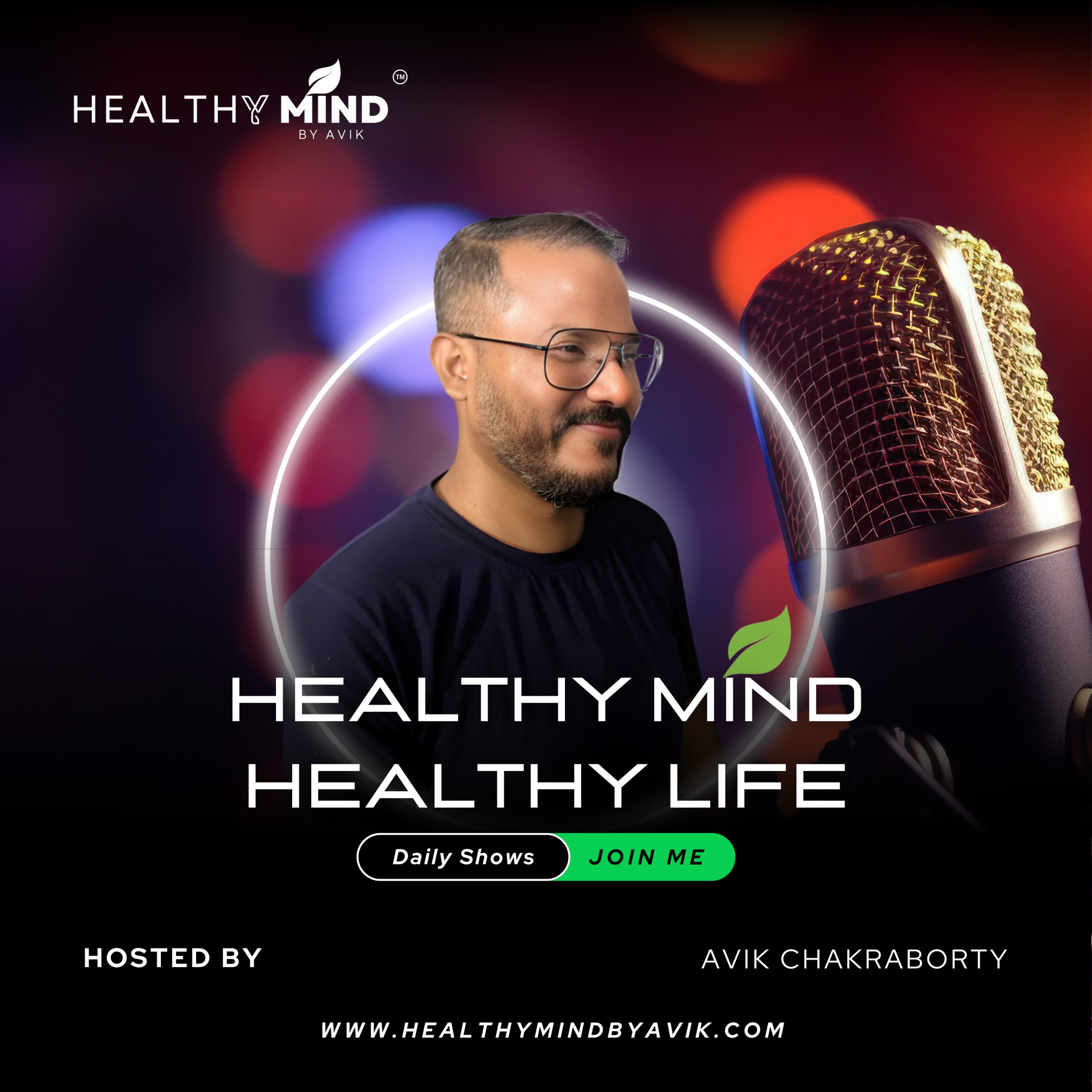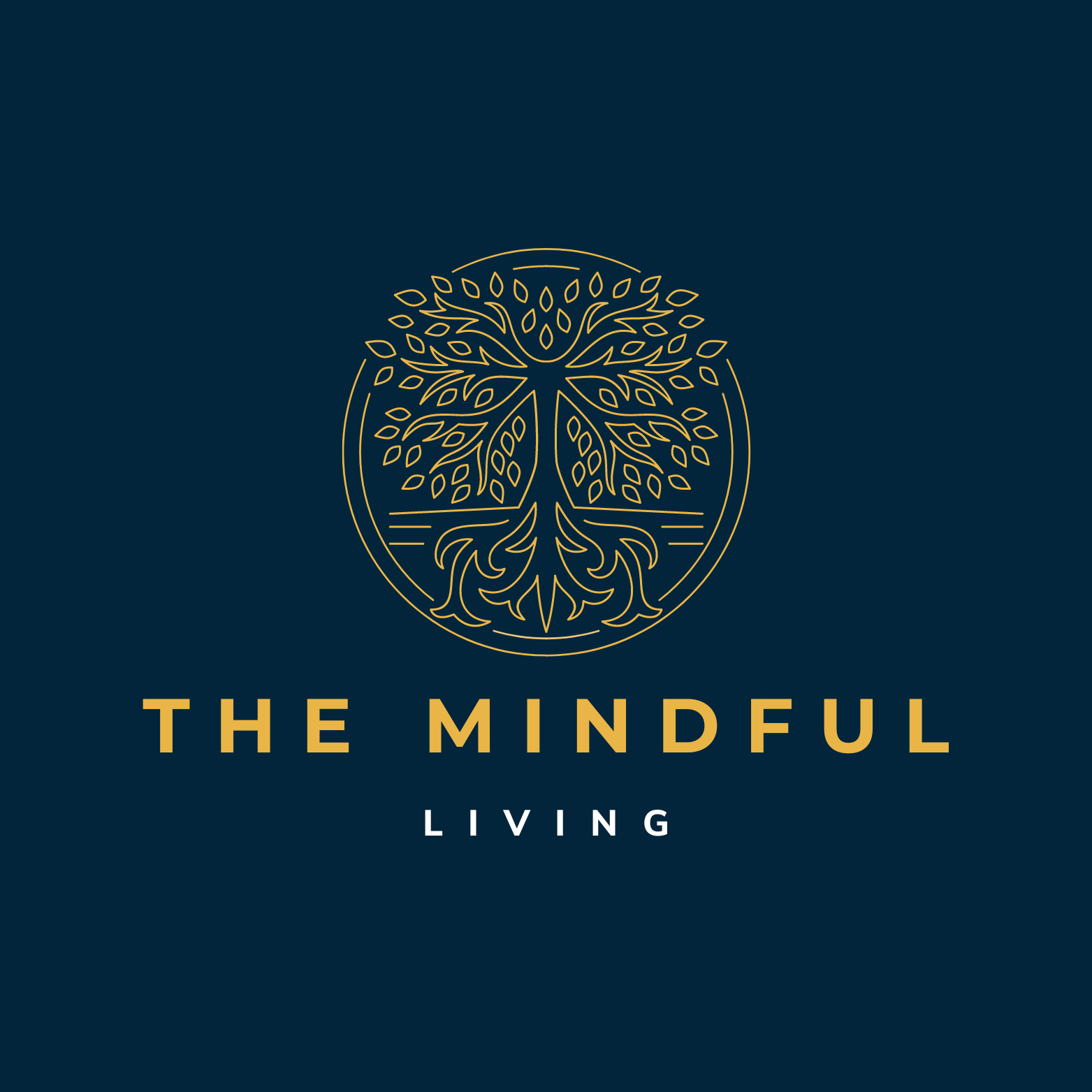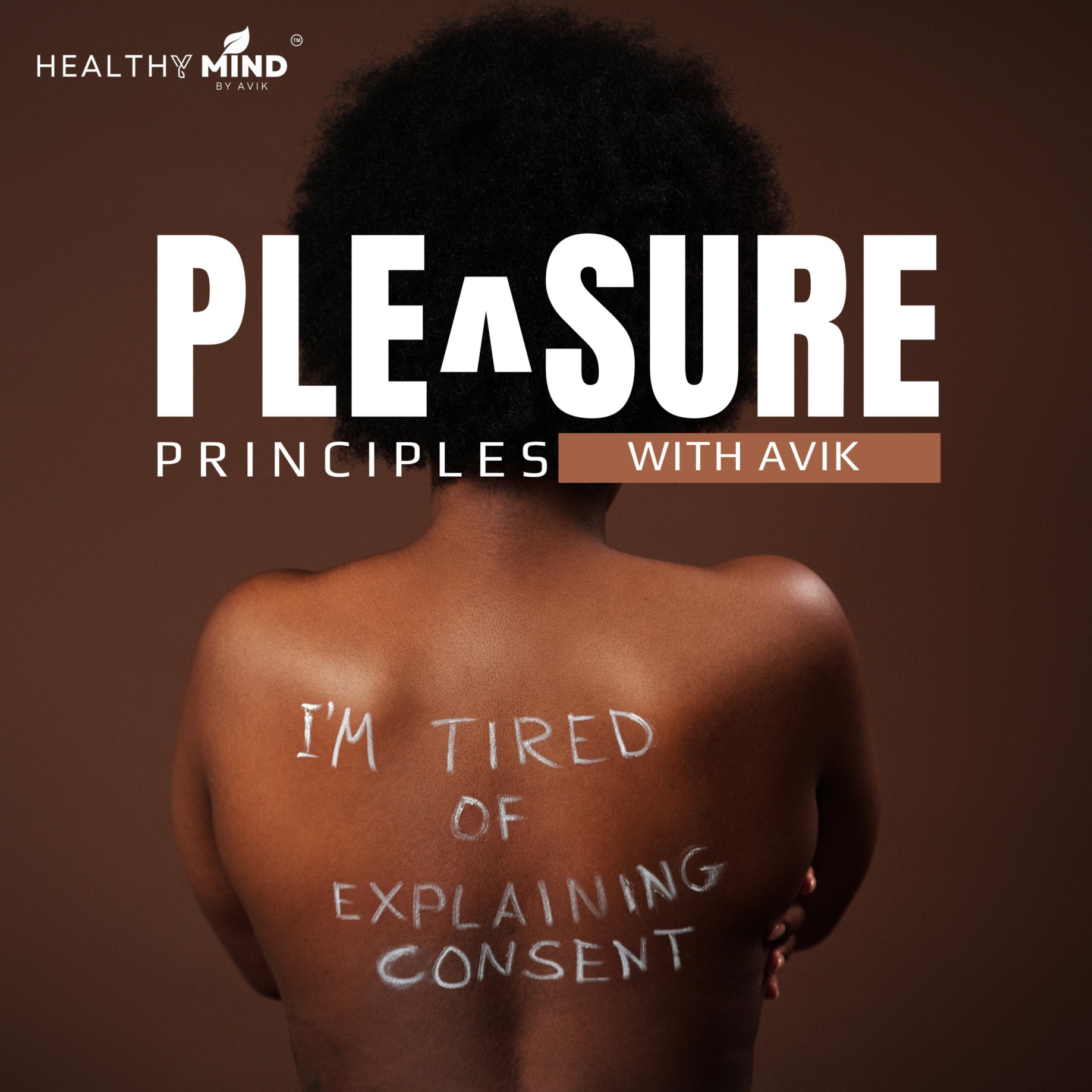
Mind Over Masculinity
Let’s stop asking men to "man up" and start asking how we can lift them up. After all, mental health is not just a women’s issue or a men’s issue—it’s a human issue.
Take the first step today. Talk, listen, and advocate. Together, we can make a difference.
Mind Over Masculinity
Uniting Your Inner Voices: A Path to Authentic Living - David Alan Brown
What happens when you prioritize peace at all costs? David Alan Brown discovered a surprising truth - that silencing emotional discomfort to maintain tranquility doesn't lead to fulfillment but to depression, which he describes not as sadness but as "feeling nothing at all." This profound episode explores how our internal voices - spiritual, emotional, and action-oriented - are meant to work harmoniously rather than in competition.
Brown shares his personal journey from confident purpose to disconnection, revealing how society's pressure to compartmentalize ourselves creates internal fragmentation. Through his Convergence methodology, he offers a revolutionary approach to manifestation that transforms it from a linear process to a continuous cycle of vision, faith, awareness, knowing, work, and gratitude.
The conversation challenges traditional self-help approaches by addressing why visualization alone fails to create lasting change. Brown provides practical starting points for integrating our authentic selves: establishing a personalized spiritual practice and consciously recognizing our three inner voices. For listeners struggling with transformation fear, he offers reassurance that what lies within isn't something to dread but the very reason we exist.
This episode redefines strength not as emotional suppression but as complete integration of all aspects of ourselves. As Brown eloquently states, "If we are not seeking this truth, then we are merely occupying space." Ready to begin your journey toward authentic living? Listen now, then share your own exp
Automate Social Media Post
Make Short Clips From Long Videos
Loved by 4M+ marketers, entrepreneurs & creators
Create and translate videos
Create and translate videos with HeyGen's AI Video Generator
Buzzsprout Podcasting
Disclaimer: This post contains affiliate links. If you make a purchase, I may receive a commission at no extra cost to you.
-----------------------------------------------------------------------------------------------------------------
Want to be a guest on Mind Over Masculinity? Send me a message.
-----------------------------------------------------------------------------------------------------------------
Stay Tuned And Follow Us!
- YouTube - https://www.youtube.com/@healthymind-healthylife
- Instagram - https://www.instagram.com/podhealth.club/
- Threads - https://www.threads.net/@podhealth.club
- Facebook - https://www.facebook.com/podcast.healthymind
- LinkedIn - https://www.linkedin.com/in/newandnew/
Hey everyone, welcome back to another episode of Mind Over Masculinity, the podcast where we break open the rigid definitions of masculinity, challenge the old narratives and explore what it means to be a whole, authentic and deeply connected human being. I'm your host, abhi, and today we are diving into a conversation that hits at the very core of personal transformation. How many of us go through life feeling like we are made of different, sometimes competing, voices. Different, sometimes competing voices the one that feels deeply, the one that takes actions, the one that seeks meaning, and yet we often suppress or ignore parts of ourselves, thinking they don't belong. They are, I mean, they are inconvenient, or maybe worse, that they make us wait.
Speaker 1:Right, it's a good one to think, right, dear listeners, but what if every part of us, our emotions, our actions, our spiritual insights was actually meant to work together in harmony? Have you ever thought, dear listeners? Do let me know your thoughts. What do you think on this, in the comment section or in the other social media platforms? That's where today's guest comes in. I have the incredible David Allen Brown with me, so welcome to the show, david.
Speaker 2:Thank you so much for having me. It's such an honor.
Speaker 1:Lovely, lovely, david. So, david, like before we start, I'd quickly love to introduce you to all the listeners. Dear listeners, david is a master of personal empowerment, leadership and self-discovery, so he has spent 30 years teaching people how to live with authenticity and purpose. Teaching people how to live with authenticity and purpose, authored books like Answer the Call and, most recently, developed Convergence, an online course that helps people integrate their inner voices into a more intentional and powerful way of living. So let's get into it and not take much of your time, dear listeners. So welcome to the show again, david.
Speaker 2:Thanks so much. I appreciate that generous introduction.
Speaker 1:Lovely, lovely. So, david, like I mean the journey to self-understanding, your journey is fascinating because you started as this highly confident, self-actualized person but over the time life clipped away at that confidence.
Speaker 2:So, if you can walk us through what led to that disconnection and how you found your way back, Well, what led to it, I think, is a long story, and it's something that many people are familiar with, which is that there was some idealism to youth. There's an exuberance, and I'm, very honestly, a child of privilege. I was raised without too much difficulty or harm, and that led me to a place to have opportunity to explore myself and others and to find what empowerment was, and to enact spirituality and discover the intense meaning of working on behalf of others and helping people find the greatness within them, and that helped me, of course, grow for myself. And then, you know, there comes a point where we have to eat and we have to have a house and we have to have a job, and sometimes altruistic work, and work that is purely spiritual, you know, leaves us out of the things that we want. And so I think the start of my turning away from my true purpose was a sense of oh, I have responsibilities now, I have the need for the material things that exist in the world, and so, without the intention of doing harm or of looking away from my true self, I just began to look for opportunities that would provide me with a sense of stability and a sense of calm, and, to some degree I became quite, I don't know, devoted, or even maybe a little addicted to the idea of just peaceful living. What is it that would be the least disruptive? What is it that would be the simplest, what of it that would be the least emotional? And I began to sort of shut down anything that took away from that, which was hard to reconcile. Peace is something that we would perceive that we want. It's a value. Okay, so I was putting everything into peace.
Speaker 2:Well, that included, say, eliminating relationships that might be more difficult than others. I could justify not engaging with other people as much. And then it became, you know, even, a way of parenting where I really avoided any sort of conflict between my children or didn't challenge them or myself very much, you know, where we really sought to have a life of peace each day. Well, that was diminishing who I was. And then, of course, disruptive feelings. If I was angry or frustrated or there was conflict on the horizon.
Speaker 2:Well then I started to kind of shut that voice down and say, well, I don't really necessarily need to have the feelings. And so here I am in two, two, two of my you mentioned the voices in the introduction both my actions, which became very minimal and very um, you know, just getting through each day, sometimes with joy, not, you know, and sometimes with effort, and but you know, doing the things, the things that were just quite simple. And then the other voice of the emotion being shut down. Because I didn't want to deal with any of that, so to speak, and without those two sort of dialoguing between each other or providing me with a purpose or a meaning in life. Then I found that I had really restricted the inspiration or the spiritual side of myself into a place of just that one ideal, which was peace, when in fact spirit can provide so much inspiration or so much activity or so much even motivation, not to mention healing and acceptance of both the things that we do and the way that we feel, the things that we do and the way that we feel.
Speaker 2:And so, as these three inner voices sort of became dormant, I found that I myself was becoming quite dormant, and after a number of years what I realized that was was not just dormancy or peace. In the end it became depression and true mental health difficulties. And I wasn't sad because I wasn't feeling anything I wouldn't allow myself, but I discovered that for me, depression wasn't being sad, depression was not feeling anything. And then, when the question was well, what would make you feel better? What action could you take? Not knowing the answer to that either, and when I found myself in that place and without a good, strong spirit to help pull me out of it, at the time I found it to be a very dangerous place indeed exactly, I totally agree on this, for sure.
Speaker 1:I mean, I mean, yeah, like, uh, it's, it's definitely a common experience, like realizing that you have been living, uh, reactively rather than intentionally. So that's where convergence comes in. So exactly, so like also, you know, we often hear this word manifestation nate. So a lot of self-help out there still follows this that visualize it, pray for it and it will come approach. But you argue on this as an incomplete way of manifesting change. So if you can share, like, how your convergent conversion method goes beyond this and why it actually works, Sure, and let's talk about it in a couple of different ways.
Speaker 2:I mean, let's begin where we just left off, which is that sense of desperation or depression. And so if one of the things we want to manifest is as fundamental as having an intentional, engaged life, then both through study and experience, one of the simple mantras in this realm is that you can't think yourself into a better mood, and I would also say that you can't merely pray yourself into a better mood, that action is required, and we know this from a physiological standpoint, we know this from a psychological standpoint, and now I've come to understand it as a spiritual standpoint as well. All of these things have to be integrated in a way that moves us from where we are to where we're going. And the Catholics have a great phrase, and it's you know pray as if God is entirely in charge and work as if you are. And I think it's a fun way of thinking of the balance between yes, we can certainly understand that the dynamics of energy whether it's a benevolent being, is your belief, or whether it's the amazing and intense energy that surrounds us at all times can be put into action on our own behalf, but we are the conduit to that action. We are the being, we are the thought process, we are the very hands that make it happen. And so when I go into manifestation and let's say it's anything again it can be mood, it can be a job, it can be a relationship, it can be a thing, an item that you want in your life I recognize the shortcomings of just believing that energy itself will manifest this and I have moved the idea of it being a line which, as you described, oh, we vision it, we pray for it and it appears and that's the end.
Speaker 2:My manifestation cycle is a circle, because I understand that, and it has many, many elements. But the first is to have that vision. We have that vision in conversation with the three main voices in our lives that we've been alluding to the spiritual, the instinctual and the action. And then from there we step forward in faith. This is where the spiritual voice comes into play so much, because it allows us the confidence to move forward. While we're moving forward, with even just simple steps, then we use our ability to assess and accept what's going on around us and therefore we're taking action. And then now we're allowing our instinctual and our emotional side to say that feels right. Oh, that door is opening. Oh, there's natural energy occurring here. So now we're continuing around the circle as we become aware of those indicators that empower us to move forward. We move into a place of knowing. That knowing is oh right, the vision is valid, the universe is responding, my actions do have meaning, my feelings are in alignment, I'm feeling what I want to feel.
Speaker 2:So then we move around the circle, continue into a place of just work. Then we have to actually do the work. That's where that sort of saying I started with comes into play. There is the what are you going to do? Whom are you going to speak to? What are you going to build? What skills do you need? What talents do you have? How are you going to actually do this in real life? Then we move into a place of gratitude and celebration, because everywhere along this path there are places in which we have in fact accomplished exactly what we want.
Speaker 2:One of my constant manifestations is the ability to be published and travel and speak and share the lessons that I have, and over the weekend I did all of those things. Now, it was a smaller audience than maybe my grandest vision. It was a smaller paycheck than maybe my grandest vision, but I understand that yesterday I accomplished my exact vision. I stood in front of people and shared my message and then went one-on-one and provided what I did. Now that brings me back to the top of the circle, where visioning is again. So now, okay, I'm doing what I want. How do I envision this next? What do I see happening here? And then we'll enter into the circle again. It's an ongoing cycle of these six phases. We use convergence and the voices to help sustain us through it or to provide us insight at specific points in the process.
Speaker 1:Exactly Amazing, amazing, really amazing, I have to say. I mean, like here the thing is like it is more about ongoing dialogue with ourselves rather than kind of one-time set-it-and-forget-it approach. So how can listeners start practicing this today?
Speaker 2:Such a great question.
Speaker 2:You know, we start with two fundamentals in the course. And, of course and the course I'm speaking of is online you can go to davidallenbrowncom and find it, it's called Convergence but we begin with two fundamental understandings. The first is do you know and are you aware of your relationship with higher power as defined by yourself? And the course allows and walks through the process of just becoming aware that there is a greater power than ourselves. And, as I say, this is defined by the participant. I'm not starting a church, I'm not going to define this for you, and all elements of spiritual interaction apply in this course. It's not a religious course, but it is a spiritual one, and so it's not for agnostics and atheists. You do have to have a belief that there is something better not better, but bigger than yourself to which you can tap into and utilize. So the first would be have you developed a practice? Because this is what it takes, as, exactly as you said, there's not a beginning and end. This is ongoing. So have you developed a daily or even more regular than that practice to invite higher power into your experience? And many faiths all across the world have some sort of mechanism for this, or have a phrase, or develop a mantra or develop a practice of meditation, and in fact, again, there are places in my course that give you an entire list of opportunities to choose and discover which one works best for you. But number one would be do you have a daily practice to invite higher power into your experience, higher power into your experience? And then number two is are you just aware of the voices themselves?
Speaker 2:We've talked about you and I, and I believe and put forth in my program that there are three specific voices and I believe that there are not more than that. I think that they need to be nurtured, I think they have to be recognized, I think that they have to be cared for. I'm aware that sometimes they get a little spicy. Sometimes they're a be recognized. I think that they have to be cared for. I'm aware that sometimes they get a little spicy, sometimes they're a little angry, sometimes they're a little neglected. Other times they're delightful and enthusiastic and wonderful and creative and they converse with each other.
Speaker 2:But before they can do that because you asked about first steps, that, because you asked about first steps the second primary step is are you recognizing that there are different methodologies in yourself, inherent in who we are, as human beings, that allow you to see things from a different angle and integrate these three areas of life into a convergent energy. And so the course will teach you how to nurture, how, if you're stuck, how to recognize, how to, you know, really empower all of these voices. But step two, after spiritual practice, step two, as you asked, is do you recognize? The voices are there, and we can teach you how to do that exactly, wow, amazing.
Speaker 1:I have to say that's a game game changer, because it removes that frustration of I'm doing everything right, so why isn't my life changing? So it's definitely great exactly it puts people back in the driver's seat. So, uh, correct, yeah, definitely so. Um, and also like, um, this thing, like overcoming the fear of change, like even positive change, can be terrifying. So, and you have gone through massive personal transformation. So what do you say to someone who wants to live more authentically but is kind of afraid of what they might uncover?
Speaker 2:Well, what a great question. What a great way of putting it Afraid of what they might uncover. Wow, what a great question. What a great way of putting it afraid of what we might uncover. Perhaps that's the best place to start, and, without sounding too much like a spiritual guru here, I do want to just share some real truth with your listeners. It's what I believe and it's what I know the voice of inspiration and of spirit will say to them. After they hear it from me from the outside, they will discover it within, and that is what is there.
Speaker 2:To be discovered is such an extraordinarily powerful energy that not only will provide the reward for doing the work of finding it and reward, I mean, in delightful living, in expansive prosperity, in wonderful creation but it is also and hear this deeply the reason that you are here.
Speaker 2:Each of us were brought forth in this place, on this planet, all billions of us in order to be part of a mechanism that brings out the higher ability, the power and the insight of each other and ourselves. If we are not seeking this truth, then we are merely occupying space, and so, while thinking, just as the destination of finding this inner wisdom is the goal, it is, in fact, the tool that puts us on the path of making a difference in the world. So I would say the simplest answer to your question is it's not about can I find this and be done or successful in life. It's can I find this within so that my life will be successful, ongoing For as long as you are here. You are called to be a loving, energetic presence for those around you and for yourself. So take the journey within and find that authenticity. That's where the light is, that's where living is.
Speaker 1:Wow, that's, that's critical takeaway, I'd say. Fear doesn't mean stop that. Differently it admins like pay attention and keep moving forward. So that's that's a great, great part. Yeah, probably great. So, david evan, this is really really an incredible, insightful conversation, and your work is giving people the practical tools to understand all the parts of themselves, not just the ones society tells them to kind of lean into. But so that that's it. So, before we move, I want to leave our listeners with this thought that we spend so much time trying to live up to one kind of idea of who we are supposed to be like strong, rational, unshakable but what if the real strength comes from embracing all the aspects of who we are? What if being intentional and kind of emotionally present and spiritually aware actually makes us more powerful, not less? And there are a lot of things that I mean. And for this, definitely, if you want to learn on all of this or you have much deeper queries to understand, do reach out to David. So, david, where can people find you and your work?
Speaker 2:The easiest way excuse me, the easiest way is through my website, which is davidallenbrowncom. The only trick there for listeners is remember that the Allen is spelled A-L-A-N, so it's D-A-D-I-D-A-L-A-N-B-R-O-W-Ncom. You can find me on socials too the author David Allen Brown on Instagram and the rest. I do appreciate the opportunity for you to allow me to share that and I don't want to let what you just said go by without a comment and affirmation. Part of the answer I didn't say, but you just did, as far as I do the work to find our authenticity is that core reminder that our authenticity is within us, all the parts of us, not the externals of who we're supposed to be or what we're supposed to be doing, especially in any assigned role. Given the theme of this particular podcast, this expectation others may put on us because of anything we are color, nationality, gender and realizing that the divine that is within us is pure and it comes through us in all of the ways when we go looking for it.
Speaker 1:Perfect, definitely so, dear listeners, you know what you have to do, whom you have to reach for all these queries, or the answers, or much deeper queries, if you have. So, all right, folks, that's it for today's episode on mind over masculinity, and if you have found value in this, please share it, leave a review and, most importantly, start your own conversation. So, whether it's with yourself, friend, someone you trust, someone you love the most, take the first step towards intentional living. So, with this hope, until next time, stay aware, stay bold and redefine what it means to be fully live. So thank you so much, thank you.


.jpg)




